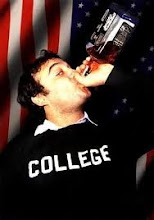 |
| General Douglas MacArthur |
As a way of putting young men to work during the depths of the great depression, FDR's New Dealers conjured up the CCC as a scheme for enlisting them to perform a variety of public work in the nation's forests and open lands.
They would be housed in camps and paid for their efforts.
The enabling legislation for this was passed by Congress in April 1933 but the roll out shortly thereafter was almost as big a bomb as Obama's registry for Obamacare.
Only 100,000 young men signed up during the first two months. (p.8)
Consequently, the New Deal liberals called on the War Department and the Army Chief of Staff, Douglas MacArthur, to straighten out the mess.
 |
| CCC workers in Florida |
The left-wingers in FDR's administration had been pushing for ever deeper cuts in US military spending, even to the point of discharging members of the rather small officer corps (this at the time when Adolf Hitler was assuming power in Germany and the Japanese Imperialists were occupying China.)
MacArthur jumped at the chance to manage the CCC. Despite his philosophic contempt for FDR's socialist measures, he saw this as a chance to keep his officers employed and active, until the day that their skills would be required on the battlefield.
In less than a month, MacArthur implemented a program to supply and transport 275,000 new CCC recruits. His officer corps conducted the logistics and training for this little army of conservation workers.
MacArthur rightly viewed his officers as the "seed corn" of national defense. A seed corn, which the shortsighted New Deal leftists had been prepared to consume.(p.9)
Roosevelt's budget planners, grudgingly conceded MacArthur's success with the CCC and refrained from further cutting of the army officer corps, because such cuts would mean cutting their beloved CCC social engineering scheme.
MacArthur's young aide, Col. Dwight D. Eisenhower, was among the first to comprehend the significance of MacArthur's tactical support for the New Deal CCC and acknowledge its brilliance:
"Gen. MacA. finally won the most important phases in his fight against drastic cutting of National Defense," Eisenhower wrote in June 1933, "We will lose no officers or men (at least at this time)and this concession was won because of the great numbers we are using on the Civilian Conservation Corps work and Gen. MacA's skill and determination in the fight." (p.10)
So with war clouds emerging from the European and Asian horizons, the left-wing New Dealer's schemes to gut the American military were thwarted by the perspicacious General Douglas MacArthur.
Ironically, at the time, FDR's New Dealer's were disparaging MacArthur as a "war monger," and tried to cut the military budget at every turn.
After the December 7, 1941 Japanese sneak attack on Pearl Harbor and Adolf Hitler's subsequent December 11th declaration of war on the USA, in solidarity with his axis ally, these same lefty New Dealers, would criticize MacArthur for a lack of military preparedness (pps. 16-19)


















